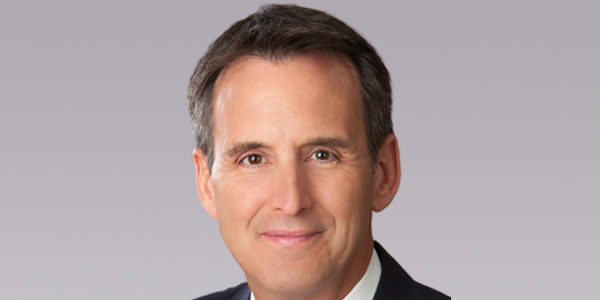Pawlenty leaving Financial Services Roundtable
Pawlenty leaving Financial Services Roundtable
- February 6, 2018 |
-
 Walt Williams
Walt Williams

CEO and former Minnesota governor expected to run for office he previously held for eight years
 Pawlenty
Pawlenty
Former Minnesota Gov. Tim Pawlenty will step down in March as CEO of the Financial Services Roundtable ahead of a possible run for a third term as governor in his home state.
Pawlenty announced Tuesday his decision to leave the $21 million-revenue FSR, which he has led since 2012. He did not immediately announce future plans but has scheduled a meeting with GOP donors Feb. 12 to talk about Minnesota's political future. Political observers believe the meeting signals his intention to jump into the governor's race.
"FSR is now poised to provide even more focused and effective service for our members going forward," Pawlenty said in a statement. "Over the past five years, I have enjoyed leading FSR's efforts to improve cybersecurity, retirement savings, consumer-friendly financial service technology, and financial literacy."
Pawlenty, 58, previously served two terms as Minnesota's governor from 2003 to 2011. He afterward launched a bid for the Republican nomination for president in 2012. The nomination ultimately went to Mitt Romney.
Pawlenty became FSR's CEO later that year, succeeding former U.S. Rep. Steve Bartlett (R-Texas). The CEO has used his position to defend the financial services industry from what it viewed as the excessive regulation created by the Dodd-Frank Wall Street Reform Act, enacted following the 2008 financial crisis. FSR also lobbied in support of the recently enacted GOP tax overhaul package.
In recent months, FSR took the radical step of shrinking its membership from 80 to 43 institutions by restricting members to banks with more than $25 billion in assets and to payment companies like MasterCard, Politico reported. Insurers such as Allstate and smaller financial institutions like Bank of Hawaii no longer qualified for membership after the changes.
The association did not publicly acknowledge the membership purge but sources told Politico the effort was led by large lenders, which wanted an association more focused on their interests.
Pawlenty received more than $2.7 million in compensation in 2016, according to tax records. In addition to his role at FSR, the CEO was at one time rumored to be considering a run for the seat formerly held by Sen. Al Franken (D-Minn.). Pawlenty told reporters in January he wasn't interested in the position.
Current Minnesota Gov. Mark Dayton, a Democrat, is not seeking re-election in 2018. At least eight people have declared their candidacy for the Republican nomination for the seat, according to Ballotpedia. Six Democrats are vying for their party's nomination. The filing deadline for candidates seeking to participate in the election is June 5.
